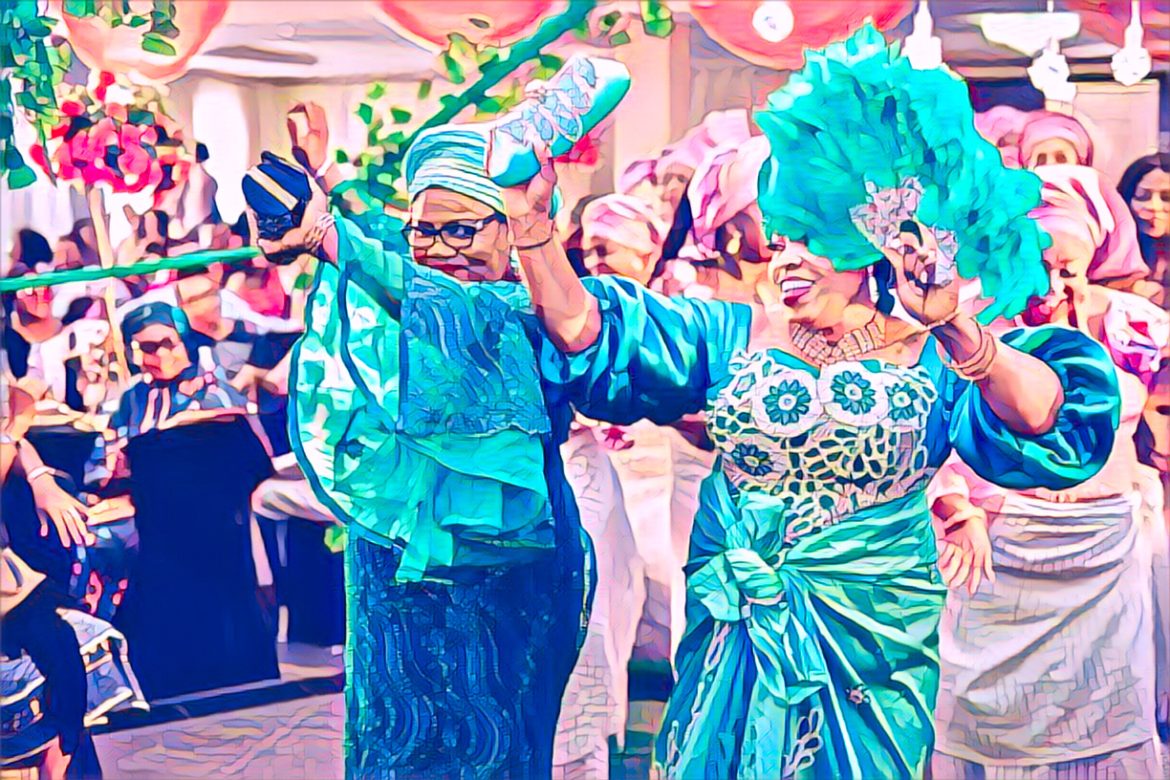KEY POINTS
- Nigerians love parties because they celebrate tradition, unity, and social connections.
- Owambe culture is deeply rooted in fashion, music, and community bonding.
- These grand celebrations contribute to both cultural preservation and economic growth.
In Nigeria, the term “owambe” evokes images of vibrant gatherings filled with music, dance, sumptuous food, and a kaleidoscope of colors.
Originating from the Yoruba phrase “ó wà nbẹ,” meaning “it is there,” owambe has become synonymous with grand celebrations that are deeply embedded in Nigerian culture.
But what fuels this enduring love for parties and the owambe tradition?
Celebrating life’s milestones with grandeur
Nigerians love to organize big celebrations to commemorate the important moments of life.
These events include weddings, birthdays, naming ceremonies and funerals, through which Nigerians bring together their loved ones for communal celebration.
Gatherings of these scale represent how community connections and collective joy are regarded by society.
As noted in an article on The Circular, owambe parties are large gatherings that involve a lot of food, dancing, loud music, and the tradition of spraying money on dancers as a form of appreciation.
Aso Ebi: unity through fashion
A distinctive feature of owambe is the “Aso Ebi,” translating to “family cloth.” The practice requires guests to wear matching fabrics, which represent their support and collective spirit for the celebrant of the event.
The choice of fabric and design showcases cultural pride and personal style, creating a visual harmony that enhances the event’s atmosphere.
Aso Ebi sets guests apart and is a symbol of unity and acceptance at these gatherings.
Music and dance: the heartbeat of owambe
Music and dancing function as essential elements in Nigerian parties, as they bring excitement and support unity among guests.
Music performances consisting of both traditional and popular songs, allow guests to participate in energetic dance sessions.
People express admiration through the communal tradition of “spraying” cash to dancers, which deepens the festive atmosphere.
Culinary delights: a feast for all
Every authentic Nigerian gathering requires multiple delectable dishes. Food plays a central role as it stands as both a symbol of generosity and welcoming spirit during this event.
Many regular dishes including Jollof rice, pounded yam served with soups and assorted meats, serve as traditional staples at these gatherings, thus satisfying each guest’s appetite.
The Nigerian tradition of community affection becomes evident through the ample food provisions at parties.
Social bonds and networking
Owambe serves purposes beyond typical partying since it enables social connection through networking.
Owambe celebrations act as platforms to unite family members, build new relationships and facilitate business exchange discussions.
The communal atmosphere provides essential support and kinship related to Nigerian cultural practices.
The social gatherings at Owambe parties provide beneficial nettworking possibilities, enhanced social bonding and long-term memory making opportunities.
Economic impact and cultural preservation
The active owambe culture plays a vital economic role in Nigeria.
The organizing of events produces financial revenue that supports designers, caterers, musicians and professional planners.
During such celebrations people have the opportunity to maintain their cultural heritage, by sharing traditional customs as they move across generations.
In essence, Nigerians strongly adhere to the owambe culture because it upholds fundamental principles of community celebration and cultural heritage preservation.
Social gatherings in Nigeria perform several essential functions including social structure support, tradition preservation and economic expansion.


